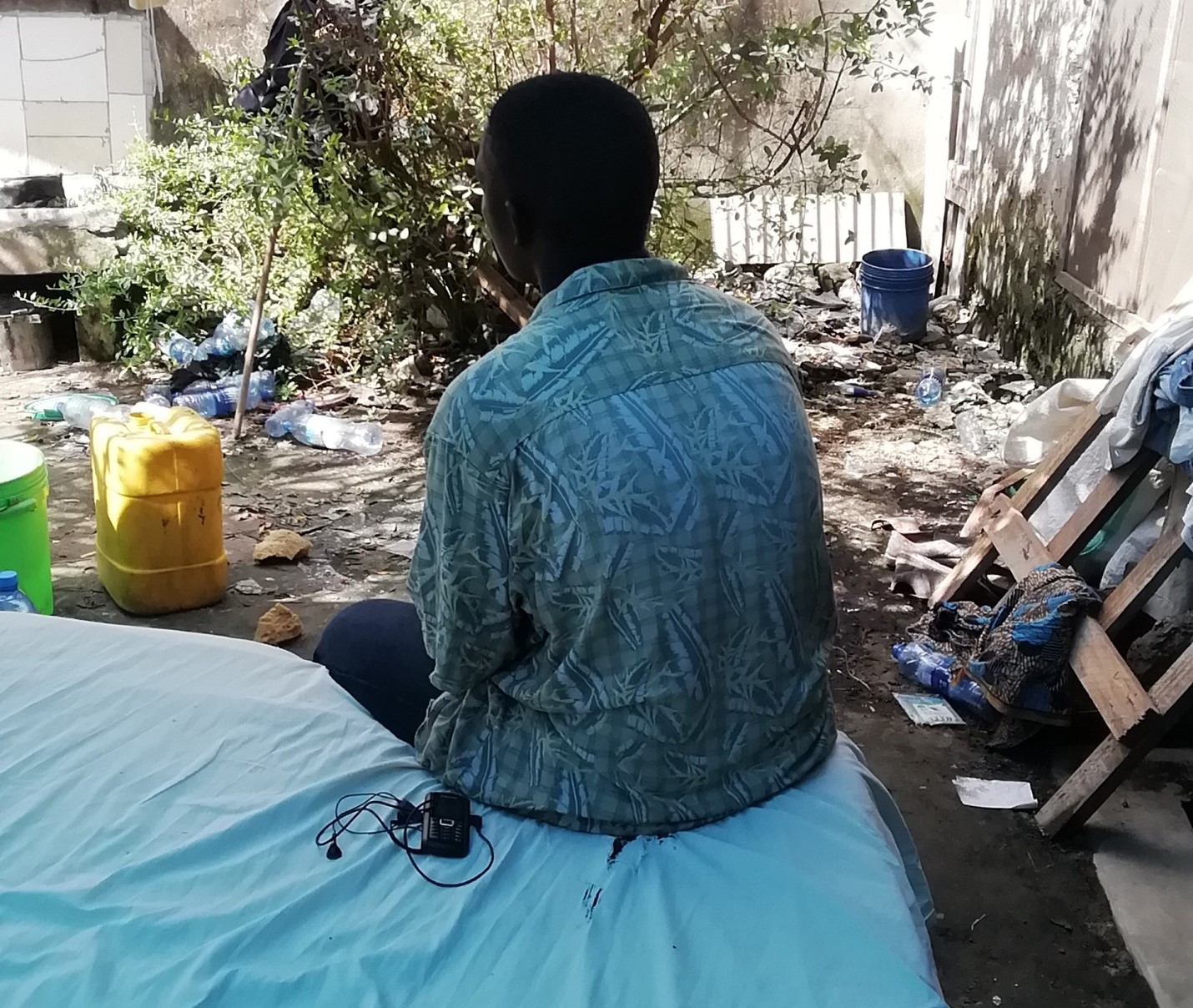Listen to the cries of refugee youth
As a child under my parents care, I was taught and told to do good and avoid the bad. In a way I felt my future was drawn for me by my parents and I was guided towards ‘better world’. But for other young people in Africa, this is not the case. The presence of negative forces has driven many young people out of their countries, forced them to abandon the world they knew and in which they grew up, forced them to abandon the surroundings that were supposed to introduce them to adulthood and a ‘better world’ (in their countries). Instead, these youth have been forced into a new world that is completely unknown to them, this sudden move has tarnished their future, turned their lives upside down and brought confusion because they were not prepared for this type of big changes. But how can they be?

A refugee youth in deep thoughts sitting on his bed and pondering about his future. Picture taken by DIGNITY Kwanza-TRAFIG on November 5, 2019 in Dar es Salaam
Young refugees are not refugees because they chose to be refugees or enjoy being refugees, they are refugees because of this big change that occurred in their lives; a change which they had no power to prevent it from happening. They had no other choice but to leave their world behind, their envisioned paths and their dreams. Instead, they sought for safety. Staying alive is, after all, the most important. It is because of this sudden change, they have been forced to grow up early and to become adults too soon. Adults, however, who have no proper direction in their lives.
Young refugees stepped into the logics of a ‘new world,’ a path towards adulthood that is alien to them. In this ‘new world’, they experience difficulties and hardships. It is as if this ‘new world’ fails to feel what they feel, fails to see what they have seen and cannot experience what they have experienced. It is hard to cope with a new environment in which one often feels discriminated and misunderstood– one’s spirit being shattered over and over again.
Let’s take a moment, clear our eyes and look, clear our ears and listen. Some young refugees may not be able to speak out because they may not know how to express their pain nor to find the right words for others to understand them. But, if one were to look closely, in their eyes, one can see their worries, their fear and their sorrow. One would be able to empathize with what they went through and experienced.
As humans, let’s take a moment and listen to their cries. Like a candle in the wind, let’s not put out their light, instead let’s uplift their spirit, get to know them and help them find their way in the ‘new world’. Let’s give them back the hope that was lost and let them know they are safe and have a place to run to. Let’s give them an opportunity to dream again. Please Lend Me Your Ear And Listen.
This blog is written by Joan Kabyemela, one of the researchers (and legal advisors) of the Dignity Kwanza team in Tanzania. In her research, Joan focuses on young urban refugees (ages 18 to 30). Ripped out of their home, youth feel disorientated in their new host environment in urban Tanzania (the ‘new world’). Joan has observed these youngsters need to redirect their dreams and future plans. In this blog she claims that listening better to these young urban refugees, is a first step in order to guide them in their navigation towards adulthood or towards new ‘better world’. Real listening would be the first step towards more durable solutions to their problems.